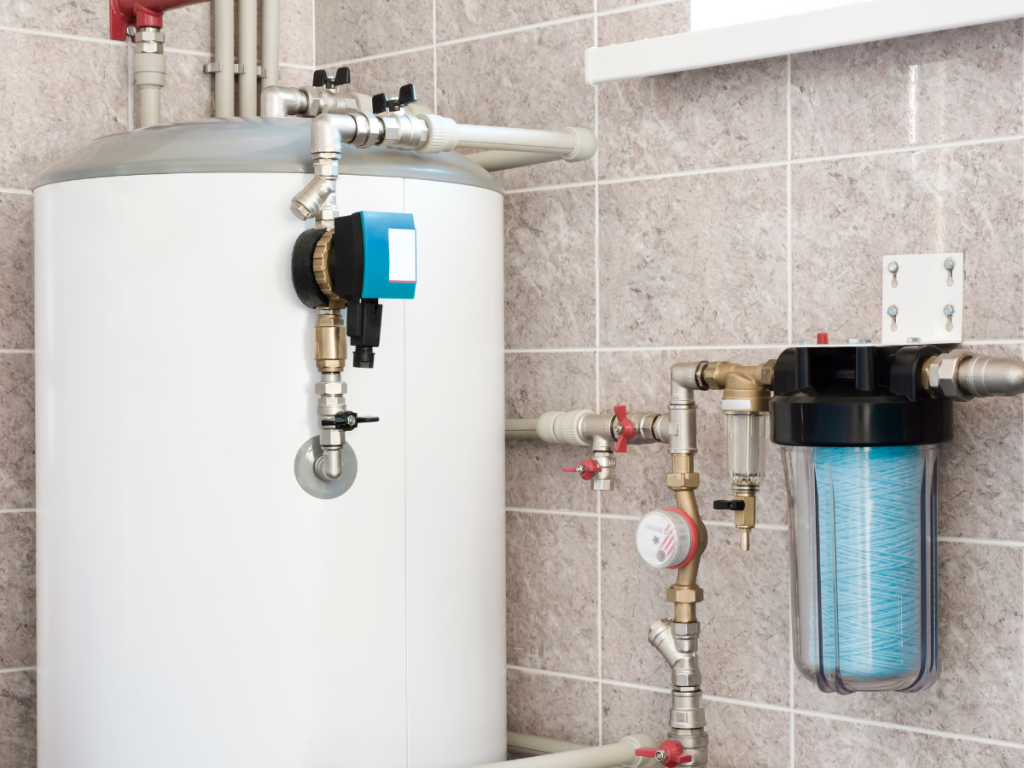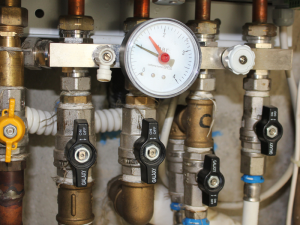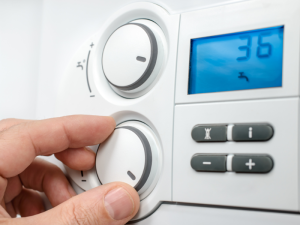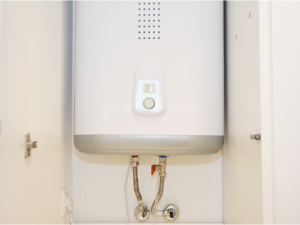Choosing the best boiler system is an important decision when it comes to heating your home. Electric boilers and oil boilers are two frequently chosen options by homeowners known for their efficiency. Both of these systems have advantages and disadvantages that can have a big impact on your comfort, energy usage, and overall heating bills, choosing one can be hard due to their differences.
To make a wise choice that best meets your unique needs, it is important to understand the differences between electric boilers vs oil boilers. By understanding the benefits and drawbacks of each one, you can confidently select the boiler that best meets your needs and makes sure a comfortable and warm home.
In this post, we’ll examine the benefits and drawbacks of both oil and electric boilers in this extensive guide to help you choose. We’ve even gone over the main elements that can affect your choice, like price, and energy efficiency.
Debating between an electric and an oil boiler system? Contact our team at Clover Contracting for professional’s opinion and quick, reliable installation work.
Electric Boiler vs. Oil Boiler: How they work in your home
One key way to know which is more suited to your home in a comparison between an electric vs oil boiler is by looking at what they are.
Electric boiler systems
Electric boilers are HVAC systems that use the electricity from your home as their main source of energy to produce heat. In addition to heating, they’re able to deliver hot water in homes or steam for heat in residential and commercial settings. Compared with traditional boilers, which produce heat by burning fuels like gas or oil, electric boilers use electric heating elements.
Oil boiler systems
The main difference between oil boilers vs electric boilers is their fuel source and how they work. Oil boilers are typically made up of a burner, a heat exchanger, and several other safety devices and parts.
The oil is ignited by the burner, which also produces a controlled spark inside a combustion tank. The water or steam inside the heat exchanger then absorbs the heat produced during the combustion process and sends it throughout the building for warmth.
Advantages of Electric Boilers
Electric boilers, like many other boiler models and HVAC systems, have a number of benefits that make them a great heating option. In the comparison between electric boilers vs. oil boilers, these are just a few of the most significant benefits you can get with an electric system.
Energy Efficiency
Electric boilers waste less energy because they convert nearly all of the power they use into heat. This efficiency can often lead to lower energy bills as well as a smaller environmental impact, something that many homeowners love.
The ability to customize heat output, or adjust it in response to demand, is another benefit of electric boilers. This allows for more accurate temperature control and energy efficiency depending on the temperature set.
Everyday Safe Use
When discussing electric boilers, safety is a key factor. One of the key benefits of electric boilers is that they do away with the need for handling and storing combustible fuels like gas or oil. As a result, the risk of accidental leaks, spills, or rare explosions is lower.
Friendly to the Environment
Electric boilers don’t burn fossil fuels like oil boilers do, so they emit barely any harmful pollutants or greenhouse gasses. This makes using electric boilers for heating a cleaner and greener option. If you’re looking to make more eco-friendly choices, you might be interested in these boilers.
Electric Boiler Drawbacks
While electric boilers have some benefits, they also have some disadvantages that homeowners should be aware of, particularly if they plan to replace oil boilers with electric ones. Consider them carefully as well because they may have a significant impact on how well your system warms your house or office.
The Overall Heating Capacity Is Limited
Electric boilers often have less heat capacity than oil boilers due to the nature of electric heating. This means that larger homes or structures with higher heating needs likely won’t get the most out of these boilers. An electric boiler also might not be able to meet your needs efficiently if your home is in an extremely cold climate with high heating needs.
The Advantages of Oil Boilers
Similar to boilers powered by electricity, oil-fired boilers have a number of benefits that make them a popular option for heating systems. When comparing electric boilers vs. oil boilers, it can be said that oil-powered systems offer their own unique features that are efficient in keeping buildings and homes warm.
Higher Heating Capacity
Since oil is its fuel source, these boilers can produce plenty of heat, qualifying them for larger homes or offices with higher heating needs. Even in extremely cold weather, the high heating capacity from burning oil makes sure that the room is properly warmed.
Trustworthy Heat Sources
Scientifically, oil is known for having a lot of potential energy in it, which means that burning oil creates a significant amount of heat. Burning oil in the boiler makes it so that even in cold weather, your home will stay warmer.
Oil boilers are often known to provide dependable and consistent heating performance, in contrast to other heating systems that might struggle to maintain constant effective heat output.
Cons of Using an Oil Boiler
While oil boilers have benefits, there are also some disadvantages to this type of system. If you’re considering installing one, or even another type of system like an electric furnace vs oil furnace, consider these factors before deciding if an oil boiler is the best option for your home. You can even contact our team for a second opinion.
Impact on the Environment
Unlike electric boilers, oil-fueled models aren’t as eco-friendly. Oil boilers emit greenhouse gasses, which increase air pollution and speed up climate change. In some cases, this can be avoided by burning the right type of oil, but it needs to be confirmed to work well with your boiler first.
More Maintenance Requirements
One of the key disadvantages of oil boilers is the need for regular maintenance. The possibility of soot or ash buildup in oil boilers tends to increase more over time as a byproduct, which can cause issues if left uncleaned for long. Oil tanks also need regular checks to make sure they’re working well without leaks.
Not sure which system to choose? Ask the pros at Clover.
When choosing between two popular types of boiler systems, there are several factors to consider, such as heating capacity, efficiency and environmental impact. Electric boilers tend to be safer and have higher energy efficiency, but they are also more expensive. Oil boilers, on the other hand, require more frequent maintenance despite having a high heating ability, and consistency.
When deciding which system will work best for your home and lifestyle, it’s good to consult a professional. If you need help, contact one of our HVAC specialists at Clover Contracting to get important details that will help you make the best decision for your house.




